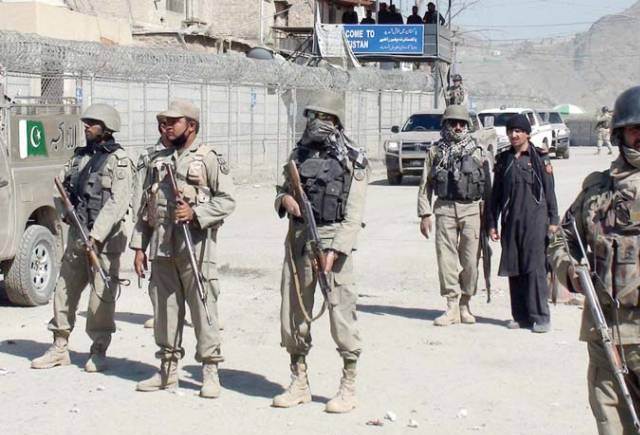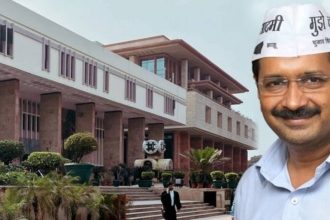Islamabad: Pakistani anare scheduled to discuss last week’s border skirmishes today (Monday) but Islamabad is unlikely to budge on a new border management mechanism it is putting in place to ensure terrorists do not sneak in from Afghanistan.
An Afghan delegation, led by Deputy Foreign Minister Hekmat Khalil Karzai, will be visiting Islamabad at the invitation of the prime minister’s foreign policy adviser Sartaj Aziz to discuss a nearly week-long standoff at the Torkham border.
Torkham – the busiest border crossing between Pakistan and Afghanistan in Khyber Agency – reopened Saturday morning after it was closed for six days following deadly clashes between the border guards of the two militancy-plagued neighbours. The fighting was triggered on June 12 by an Afghan security forces attempt to disrupt the construction of a gate well within the Pakistani territory.
Pakistan’s Foreign Office welcomed the Afghan delegation’s visit, saying Islamabad “looks forward to meaningful deliberations to promote bilateral relations as well as peace and stability in the region.”
Pakistan has started introducing a new border mechanism at the Torkham border from June 1. Under the new border controls, Pakistan has made it clear that no one would be allowed to cross the border without a valid passport and a visa.
Official sources say Pakistan will stick to its position with regard to the new border rules.
Sartaj Aziz has already spelt out Islamabad’s stance in a policy statement in which he said the new border rules had been introduced as part of the government’s counterterrorism strategy to check infiltration of terrorists from Afghanistan.
He reiterated in a BBC interview on Sunday that the gate would be built at all costs. “Pakistan is neither violating any bilateral agreement with Afghanistan nor any international law,” he said and warned that Pakistan would retaliate if attacked again.
Aziz said the issue of terrorism and smuggling could not be tackled until some sort of border management system was put in place at the Pak-Afghan border. Almost 50,000 people cross the Torkham border without questioning. “These travellers include all types of people. We told Afghanistan in May that from June 1, no one will be allowed to cross the border without valid travel documents,” he added.
Aziz said Afghanistan wanted Pakistan to stop construction of the Torkham gate. “However, we are building the gate on our side of the border, and we do not need anyone’s permission.” After its completion, the gate, which, he said, was being built 30-35 metres inside Pakistan’s territory, would be opened for traffic.
Aziz said documenting travel at the border crossings was in the interest of both the countries as Afghan officials often complained about infiltration from Pakistan. “It’s essential as Pakistan’s and Afghanistan’s security concerns cannot be addressed until we have [identification] facilities at the border,” the adviser said.
Commenting on former Afghan president Hamid Karzai’s statement that Pakistan does not want to give Afghanistan direct access to India, he said issues could be resolved only when New Delhi agreed to dialogue which could happen when the two counties normalised their relationship.






